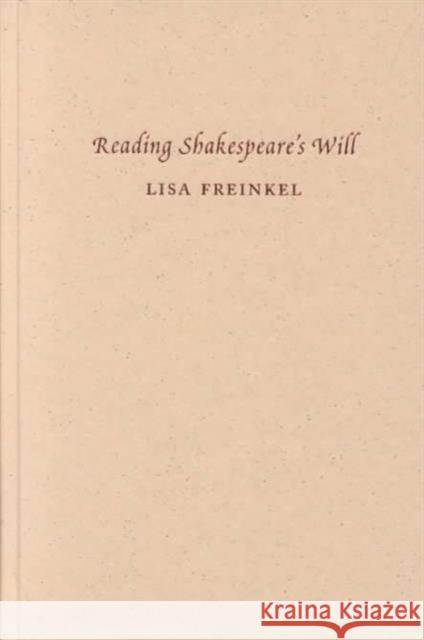Reading Shakespeare's Will: The Theology of Figure from Augustine to the Sonnets » książka
topmenu
Reading Shakespeare's Will: The Theology of Figure from Augustine to the Sonnets
ISBN-13: 9780231123242 / Angielski / Twarda / 2002 / 416 str.
Reading Shakespeare's Will: The Theology of Figure from Augustine to the Sonnets
ISBN-13: 9780231123242 / Angielski / Twarda / 2002 / 416 str.
cena 514,50
(netto: 490,00 VAT: 5%)
Najniższa cena z 30 dni: 508,20
(netto: 490,00 VAT: 5%)
Najniższa cena z 30 dni: 508,20
Termin realizacji zamówienia:
ok. 30 dni roboczych.
ok. 30 dni roboczych.
Darmowa dostawa!
The most influential treatments of Shakespeare's Sonnets have ignored the impact of theology on his poetics, examining instead the poet's "secular" emphasis on psychology and subjectivity. Reading Shakespeare's Will offers the first systematic account of the theology behind the poetry. Investigating the poetic stakes of Christianity's efforts to assimilate Jewish scripture, the book reads Shakespeare through the history of Christian allegory.
To "read Shakespeare's will," Freinkel argues, is to read his bequest to and from a literary history saturated by religious doctrine. Freinkel thus challenges the common equation of subjectivity with secularity, and defines Shakespeare's poetic voice in theological rather than psychoanalytic terms. Tracing from Augustine to Luther the religious legacy that informs Shakespeare's work, Freinkel suggests that we cannot properly understand his poetry without recognizing it as a response to Luther's Reformation. Delving into the valences and repercussions of this response, Reading Shakespeare's Will charts the notion of a "theology of figure" that helped to shape the themes, tropes, and formal structures of Renaissance literature and thought.










